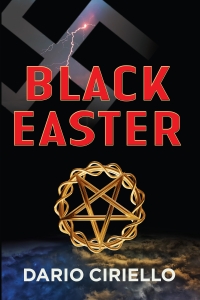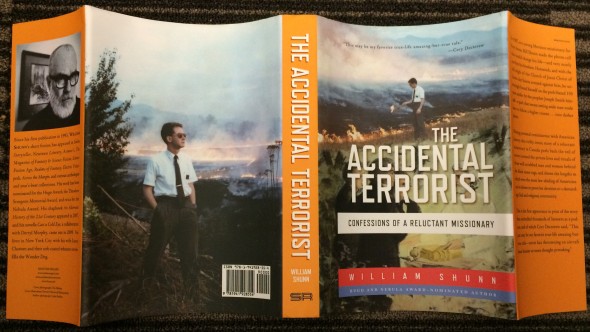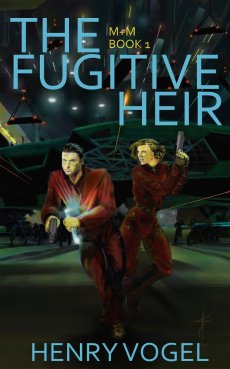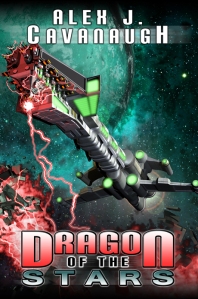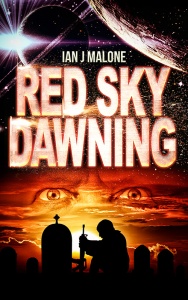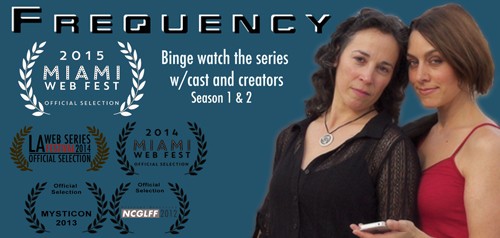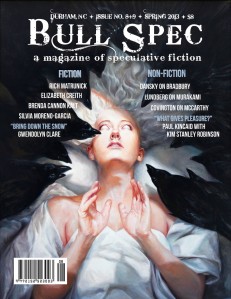The Hardest Part: Dario Ciriello on Black Easter
Posted: 9 December, 2015 Filed under: The Hardest Part | Tags: dario ciriello Leave a commentI’ve got a fairly decent-sized section of my “favorites” bookshelf dedicated to Dario Ciriello, who since 2009 has edited and published Panverse Publishing. His fantastic 2009 anthology Panverse One was a direct inspiration to starting Bull Spec, and after three outstanding volumes in that all-original-novella series (and another anthology, Eight Against Reality) and his best-selling memoir of a year living in Greece (Aegean Dream) he edited and published novels by Bonnie Randall, Doug Sharp, and T.L. Morganfield, as well as his own international thriller Sutherland’s Rules, a kind of mad-cap drug smuggling misadventure ranging from California to London to Afghanistan and points between, and! his collection Free Verse and Other Stories. He’s one of my favorite people in the world, and I’m pleased as punch to be able to tell you a little about his new supernatural thriller Black Easter, before he tells you a bit about the hard parts of writing it.
Hugo, Nebula, and World Fantasy Award winner Ken Liu calls Black Easter “a perfectly paced tale of terror and love that you cannot put down” which, as far as blurbs go, is indeed pretty neat. It’s also got some dark, original wrinkles on the realm we know as “hell” as well as a pair of trios — a black magician, a seer, and an SS officer from 1944, and an expat family from San Francisco renting an old house on the same small Greek island where the first trio carried out their own ritual suicides 70 years prior — that end up battling both over the same set of physical bodies as well as quite possibly the fates of both human- and demon-kind. There’s less rollicking misadventure (as in Sutherland’s Rules, where a hashish-fueled plot twist is never too far off-page) but plenty of the same tightly plotted, high-stakes action that keeps those pages turning, and more-than-meets-the-eye characters that don’t act as mere two-dimensional plot devices.
I’m absolutely certain that Dario got some of the ideas for this book from his time actually living as a San Francisco expat in Greece; I had no idea just how hard this novel was for him to finish. In fact, there were three “hardest parts”. Here’s Dario to tell you all about them:
— Essay by Dario Ciriello —
Every project we undertake has its own distinct challenges, and writing a book is no exception to this. Black Easter – my fourth book and second novel – had not one but three hardest parts. It was a tough book to write. Read the rest of this entry »
The Hardest Part: William Shunn on The Accidental Terrorist
Posted: 23 November, 2015 Filed under: The Hardest Part | Tags: accidentalterrorist, william shunn Leave a commentIn early 2009 when I started taking reading and writing seriously again, one of the first authors I “discovered” was William Shunn, whose Proper Manuscript Format for Fiction Writers is practically required reading, and who, along with his fellow Blue Heaven workshop/retreat authors Paolo Bacigalupi and Greg van Eekhout were active — and welcoming! — on Twitter, even to those writing umbrella duel fan-fiction inspired by their Electric Velocipede stories. Van Eekhout’s Norse Code had yet to be released that summer, Bacigalupi’s The Windup Girl was still months away from publication that fall, and watching Shunn banter with and encourage them was certainly a great model for a Twitter and genre newbie such as myself. Shunn’s own book that winter was Cast a Cold Eye (with Derryl Murphy), but it is his 2007 Nebula and Hugo Award finalist novella Inclination which I think is the best corresponding genre reading to bring along for his new memoir The Accidental Terrorist: Confessions of a Reluctant Missionary.
In Inclination, we follow a young, first person protagonist’s emergence from the protective shell of his religious upbringing into the wider world of a space station, populated with all manner of interesting characters, and on through his growth in awareness of what exactly he has been sheltered from, and finally on to a satisfying conclusion. Even the “tip of the iceberg” knowledge that Shunn was raised Mormon and had since left the LDS Church makes the comparisons to his real life experience easy; anyone (like me, for instance) who was raised in a conservative religious family and later had to resolve the conflict between spirituality and reality, whether leaving their faith or affirming it, can at least find in Shunn’s novella the essence of that struggle, of that question. Read the rest of this entry »
The Hardest Part: Delilah S. Dawson (writing as Lila Bowen) on Wake of Vultures
Posted: 28 October, 2015 Filed under: The Hardest Part | Tags: delilah s dawson, lila bowen, wake of vultures 1 CommentI recently had the chance to play chauffer for Georgia author Delilah S. Dawson, in town for appearances both at the SFWA Southeast Reading Series and the SIBA trade show. I learned many things. Dawson: knows her D&D editions; is as fascinated as anyone would be by a display of bizarre medical texts and archaic medical apparatus; has an appreciation of American transcendentalism; will totally impulse buy and eat Frankenstein candies of unknown provenance; and she had a really, really, really intriguing book coming out soon, pitched as “It’s Lonesome Dove meets Buffy the Vampire Slayer with a biracial, genderqueer heroine.” That book, Wake of Vultures, is out now in print, ebook, and audiobook editions. Elsewhere, Dawson wrote about the Big Idea behind the book, and here she writes about the hard part of giving into a story of questionable marketability she was starting to obsess about (and would instigate a new pseudonym!) instead of playing it safe and writing another “Delilah S. Dawson” young adult book. Enjoy!

— Essay by Delilah S. Dawson, writing as Lila Bowen —
Every story involves the writer taking the reader’s hand and urging them to jump out into the unknown. Some books are like hopping in a shallow, pretty rain puddle, but Wake of Vultures was more like leaping off a cliff. The hardest part was getting over my own fear of failure.
The inspiration for Wake was a late night tweet. This one, in fact:
New book idea: Urban fantasy x Lonesome Dove. Gus and Call hunt the actual Wendigo instead of Blue Duck. *waits for money to fall from sky*
— Delilah S. Dawson (@DelilahSDawson) December 4, 2013
It started as a joke but quickly became an obsession. Read the rest of this entry »
The Hardest Part: Henry Vogel on The Fugitive Heir
Posted: 15 October, 2015 Filed under: The Hardest Part | Tags: aaron starr, bruce bethke, henry vogel Leave a commentThe planetary romances of Edgar Rice Burroughs and Leigh Brackett fueled Raleigh author Henry Vogel’s imagination and directly inspired his Scout series of novels, published by Bruce Bethke at Rampant Loon Press. For his new novel, The Fugitive Heir, Vogel has (with Bethke’s blessing and support) submitted his “space opera meets adventure thriller” to the Kindle Scout program. To give his submission the best chance for success, Vogel had artist Aaron Starr, who has also provided the covers for the “Scout” series, create a fantastic cover to go along with Vogel’s (obviously still planetary romance influenced) pitch: “My parents are not dead! I know it but can’t tell anyone why I know. Of course, no one believes me. They say I should take my vast inheritance and let it go. They’re wrong. So I’ll use my inheritance to fund the search for my parents. I didn’t count on opposition from the board of the company I’m inheriting, but powerful people will do anything to protect their dark secrets. They didn’t count on my two wildcards—a rebuilt spaceship and a blonde classmate I’ve loved since the sixth grade.”
When I wrote Bethke to ask about his thoughts on Vogel’s decision to go with the Kindle Scout program, he replied: “Of course I support what Henry is doing, just as I supported Beth Cato when she was shopping The Clockwork Dagger to Harper Voyager, Guy Stewart when he was shopping Heirs of the Shattered Spheres to MuseItUp, or Robert Lowell Russell as he’s shopping something I’d really love to have first dibs on to Tor right now. It’s worth noting that when we incorporated in 2008, we’d originally planned to name the company Launchpad Press, but didn’t because that name was already taken. That name did grok our concept, though. We were hoping to become the platform from which at least a few new writers — and editors! — launched their careers.”
Well, we also have a chance to help Vogel’s career get a little launch boost, by nominating his Kindle Scout campaign. Here, Vogel writes about the pard part of “pantsing” his way through The Fugitive Heir. Enjoy!
— Essay by Henry Vogel —
The hardest part of writing The Fugitive Heir was my complete inability to plan much beyond the next scene of the novel. You see, I am a ‘discovery’ writer—also known as a ‘seat-of-the-pants writer’ or a ‘pantser.’ In direct contradiction to the majority of the writing advice you’ll find, I don’t out create a detailed outline. I don’t even create a minimal outline. Read the rest of this entry »
The Hardest Part: Alexandra Duncan on Sound, ahead of her appearance this Sunday at Flyleaf Books
Posted: 9 October, 2015 Filed under: The Hardest Part | Tags: alexandra duncan, flyleaf books 1 CommentAsheville author Alexandra Duncan’s new novel Sound is the stand-alone companion to her award-winning novel Salvage, a debut that internationally bestselling author Stephanie Perkins called “kick-ass, brilliant, feminist science fiction.” But I believe my interest was piqued when it was being described as perfect “for fans of Beth Revis, Firefly, and Battlestar Galactica.” In Salvage, the action focused on Ava, “a teenage girl living aboard the male-dominated, conservative deep space merchant ship Parastrata, faces betrayal, banishment, and death. Taking her fate into her own hands, she flees to the Gyre, a floating continent of garbage and scrap in the Pacific Ocean.” In her adventures (which The Exploding Spaceship reviewed here) she meets Miyole, the young daughter of the ship’s captain who helps her get to earth. In Sound, the perspective shifts to more directly tell Miyole’s story: “As a child, Ava’s adopted sister Miyole watched her mother take to the stars, piloting her own ship from Earth to space making deliveries. Now a teen herself, Miyole is finally living her dream as a research assistant on her very first space voyage. If she plays her cards right, she could even be given permission to conduct her own research and experiments in her own habitat lab on the flight home. But when her ship saves a rover that has been viciously attacked by looters and kidnappers, Miyole—along with a rescued rover girl named Cassia—embarks on a mission to rescue Cassia’s abducted brother, and that changes the course of Miyole’s life forever.”
When Duncan wrote about the hardest part of writing Salvage back in 2014, ahead of her appearance in a YA panel at Flyleaf Books shortly after the book’s release, she described her struggles with her own neurochemical balances. For book two, she’s also coming to town as part of a fantastic YA author panel at Flyleaf Books, which includes Amy Reed and Jaye Robin Brown and is this coming Sunday (October 11) from 4 to 5 pm. But this time around, it was the “curse of the second book” that Duncan struggled against. In another fantastic essay for “The Hardest Part” guest column, she writes about having to learn how to write all over again. Enjoy!


— By Alexandra Duncan —
Among writers, there is an urban legend — the curse of the second book. It’s exactly what it sounds like. Your first book may have been magical and transporting, a critical darling. But your second book? It’s going to be terrible. And it’s going to bomb. Read the rest of this entry »
The Hardest Part: Karissa Laurel on Midnight Burning
Posted: 16 September, 2015 Filed under: The Hardest Part | Tags: Karissa Laurel, midnight burning 1 CommentTriangle author Karissa Laurel rides motorcycles and reads slush for Strange Horizons; clearly, she is not risk-averse. However, there’s a difference between, on the one hand, putting body and mind on the line either on a quiet road or in the privacy of one’s own office, and on the other hand, in her work as a the debut author of Midnight Burning from Garner-based Red Adept Publishing, putting her words forward for all to see, along with the other marketing and publicity that the “public persona” side of the modern author’s duties require. (Such as, oh, I don’t know, appearing on Carolina Book Beat this July for a radio interview, about which she wrote that “I would much rather hide in my writing cave.”) Writing can be a solitary act, but publication isn’t. The characters, stories, and words you’ve painstakingly wrought from mind through body and fingers to keyboard and onto the page now exist, unchanging, on the printed page. Absolutely anyone could be reading it: your friend, your sister, your parents, your future grandkids, a stranger in Alaska with detailed geographic knowledge and many nits to pick, an expert on Norse mythology with several shelves of translations and plenty of time to cross-reference where you’ve fudged things up, a book blogger who was looking for something else from your book. As it turns out, even if writing the book is a joy, and you find your publisher through a chance meeting at a local convention, and! your relationship with your editor is great, too! there’s still the final hard part of letting go.

By Karissa Laurel:
In thinking about the hardest part of writing Midnight Burning, I couldn’t pick out one specific anecdote. And it wasn’t because of an overabundance of choices. In truth, it was the opposite.
Creating Midnight Burning took a lot of work, and it was tedious at times, but I loved every step. From dreaming up the idea (Why are all the stories about Odin and Thor? Weren’t they supposed to have died in some apocalyptic battle eons ago? Why not create a story about the gods who survived that battle? What would they be like in the modern world?) to the research, the daily grind of putting words on the page, the submission process, and the final editing and finishing stages— I had a blast. Read the rest of this entry »
The Hardest Part: Alex J. Cavanaugh on Dragon of the Stars
Posted: 7 July, 2015 Filed under: The Hardest Part | Tags: alex j cavanaugh, dancing lemur press, dragon of the stars 13 CommentsNorth Carolina author Alex J. Cavanaugh already has three Amazon bestsellers under his belt with his first trilogy, as well as a sizzling review from Library Journal which praised the series as one which “calls to mind the youthful focus of Robert Heinlein’s early military sf, as well as the excitement of space opera epitomized by the many Star Wars novels.” After the publication of CassaStorm in late 2013, I’d been on the lookout for his next book, but it wasn’t until I e-stumbled onto it in late December last year on a popular Goodreads list (Most Anticipated Science Fiction, Fantasy, and Horror Novels of 2015) at #3 that I started to get an idea just how much of a following Cavanaugh has grown over first years of his young writing career. As I wrote him, “Dude, That’s one way to let a guy know that you have a new book coming in April!” (Now he’s at #15 on the list, which is still pretty impressive, above such heavyweights as John Scalzi and Stephen King, and this fellow named Neil Gaiman. You may have heard of him.) Here, Cavanaugh writes about finding a new voice and a new world for Dragon of the Stars.
Starting a New Story After Finishing a Series
By Alex J. Cavanaugh
When I wrote my first book, I never envisioned a series. When it expanded to three books, I found certain aspects of the sequels were easier since the world and characters were already established. It provided a starting point on which I could continue to build.
Once I finished the series, I wasn’t sure I would write another book. I knew I wouldn’t continue with the Cassa universe. I’d taken the main character on his journey and there wasn’t much farther I could go with the story.
And then an idea hit me for a standalone story. Dragon of the Stars would not take place in the same universe though. That meant starting from scratch. Read the rest of this entry »
The Hardest Part: David Afsharirad on The Year’s Best Military Science Fiction and Space Opera
Posted: 3 June, 2015 Filed under: The Hardest Part | Tags: baen, david afsharirad 2 CommentsI think that I first met David Afsharirad at an NCSU MFA get together a year years ago now, ahead of fall classes getting started one late summer. With his trademark thick-black-rimmed glasses and friendly, casual air, I looked forward to seeing him around at readings and other events, catching up on what he was reading, how his writing and teaching were going. I was beyond thrilled when he joined Baen Books as a consulting editor and copywriter, and still, my eyes opened pretty widely when Baen announced Afsharirad as the editor for a new annual anthology series for The Year’s Best Military Science Fiction and Space Opera — as the press release put it, he was certainly a “newcomer” to that level. Still, Afsharirad had his life-long interest in short sf to lean on, his (by then) two years copy editing for Baen, his work with John Kessel at NCSU, as well as the support of rest of the Baen brain-trust in this area of short sf literature. (No shortage to be had, there, as he notes in his acknowledgements.) You can get a further sense of Afsharirad’s passion for short sf in his preface, which along with David Drake’s excellent introduction (offering a brief survey of both space opera and military sf) is available in the sample chapters at Baen’s website, and you might get a sense as to the book’s success by a short snippet from Publishers Weekly‘s starred review: “Every story takes the reader on a fascinating, thought-provoking, enjoyable journey into the militarized future.”
Here, Afsharirad writes about the hardest part of putting this first annual edition of the anthology together, work that included scouring the hundreds (thousands) of stories under his remit, resulting in an anthology which draws from online magazines (Clarkesworld, Galaxy’s Edge, Lightspeed, and Baen.com), print magazines (with “the big three” of F&SF, Analog, and Asimov’s all represented), and themed anthologies (War Stories, Extreme Planets, and Monstrous Affections) alike. But how to pick the best from the good? That’s the question at hand.
The slush pile, that quagmire of stories that clutters every editor’s desk. It’s full of dreck, of course, but it must be read. Because occasionally one finds among the detritus a truly worthy piece of writing. Editors complain about reading slush all the time, and it is true that working your way through all those manuscripts can be a slog. But really, it’s not that tough. You can usually tell within a page or two (or less, let’s be honest) if a story has what it takes to make the cut. Read the rest of this entry »
The Hardest Part: Ian J. Malone on Red Sky Dawning
Posted: 8 May, 2015 Filed under: The Hardest Part | Tags: ian j malone, mako, red sky dawning 1 CommentDurham author Ian J. Malone‘s 2013 science fiction debut Mako introduced a team of five “thirty-something” friends who become the first-ever group to beat the (fictional, at least for now!) video game “Mako Assault”. Flown to meet the game’s mysterious designer, they learn that the game’s intent was far more than entertainment: the game was designed to train and identify just such a group of human players, desperately needed in an interstellar war. (If you’re thinking of The Last Starfighter you may be on to something.) Two years later Malone returns with Red Sky Dawning, a sequel set five years after the climactic battle of his debut, and here writes about the hardest part in expanding the adventure-scoped story from Mako into a star-spanning web of politics, worlds, and characters. Sort of. You’ll see. Read on!
By Ian J. Malone:
Hola gang! Greetings from the Bull City!
On the whole, I’d dare say Red Sky Dawning was a harder book to write than its predecessor, Mako, in nearly every way. Whereas Mako was, at its core, the story of five college friends fleeing their thirty-somethings lives for one last grand adventure, Red Sky Dawning is a true coming-of-age story set against the backdrop of an interstellar civil war. There was political intrigue to write, plus tons of new characters, ships, tech, and worlds to introduce — all of which had to be explained and fleshed out while advancing the stories of everything and everyone that came before it in the series’ book one. That’s A LOT of juggling, people. We’re talking Barnum & Bailey, here. So was any of it the “hardest part?”
Nope. Read the rest of this entry »
The Hardest Part: Piper Kessler on Frequency
Posted: 17 April, 2015 Filed under: The Hardest Part | Tags: frequency, piper kessler 1 CommentOn Thursday, April 23, 2015, Motorco will screen three seasons of the immensely popular lesbian sci-fi original series Frequency, which features cast, crew, and settings from the Triangle area. Fans will be treated to scenes and storylines from the first three seasons, including unreleased episodes from the current season (three) and exclusive content from the upcoming fourth season. The event will be emceed by Tracey and Matthew Coppedge of The Lowdown Show. Produced by KV Works, Frequency boasts over four and a half million views on YouTube worldwide and was an Official Selection at the Los Angeles Web Series Festival and Miami Web Fest. The series is written by Durham’s Piper Kessler, produced by Monique Velasquez, and stars Meredith Sause (“Foodie”) and Lisa Gagnon (“Disengaged”), along with Tony Hughes, Kat Froelich, and Jenn Evans.
The (free, $5 suggested donation) screening begins at 6:42, although doors open at 6. Q&A, series trivia, and general good times are expected. Cast and crew will be on hand to meet and greet, including Kessler, who here writes about “The Hardest Part” of putting this all together.
By Piper Kessler:
When folks tell you the hardest thing they’ve ever done rarely does it fall under what is truly difficult. I’m sure people would think producing an original sci-fi series with lesbian main characters in a state not known for it’s love of “the gays” is a hard undertaking. Nah. I’ve lived in North Carolina all my life. I’ve heard, well, they’re the good kind of Lesbian, Gay, Black, Mexican… Yep, fill in the blank with an other of your choosing. Hard times are given to strangers, not the odd uncle, sister and beer drinking buddy. Cause my buddy? Well, he’s different. Read the rest of this entry »

![IMG_2546[1]](https://bullspec.files.wordpress.com/2015/12/img_25461.jpg?w=225&h=300)
